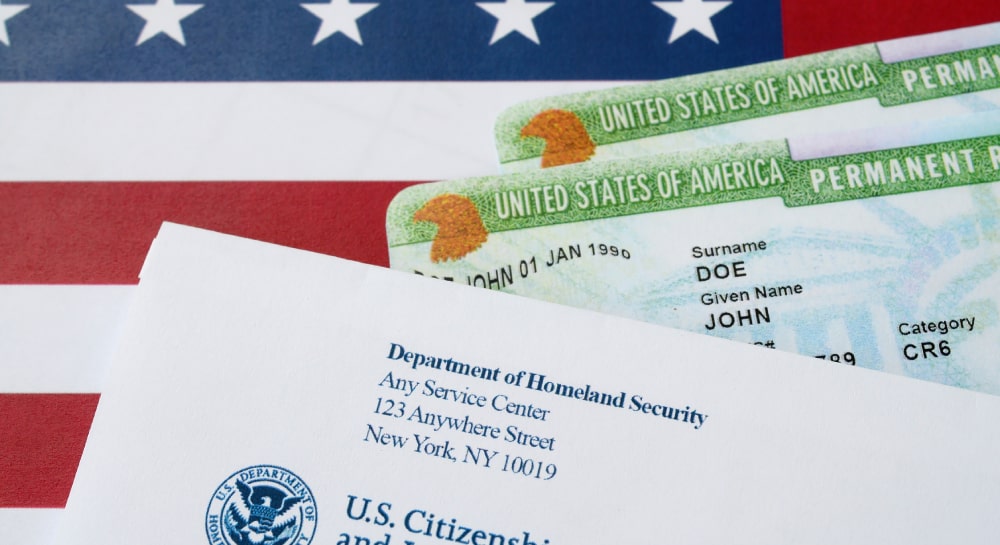Nurses with international credentials who adhere to Nursing Council standards can apply to register to practice in New Zealand. You may immigrate to New Zealand as a nurse and start working if you are registered in a nation other than Australia and meet the registration requirements set forth by the Nursing Council. TO work as a nurse in New Zealand, Australians have different requirements.
New Zealand offers a friendly environment for medical professionals focusing on patient-centered care and a commitment to work-life balance. This blog aims to draw attention and tell you how to apply nurses in New Zealand and make New Zealand your home.
How to Immigrate to New Zealand as a Nurse?
You must follow a step-by-step process that entails fulfilling prerequisites and carrying out particular procedures to immigrate to New Zealand as a nurse. To work as a nurse in New Zealand, you must:
Step 1. Determine Your Eligibility
Ensure you are initially eligible to work as a nurse in New Zealand. This typically entails meeting the English language proficiency requirements, having a recognized nursing degree, and having relevant professional experience. In addition, the Nursing Council of New Zealand’s specific requirements must be carefully reviewed and comprehended.
Get the FREE Cheat sheet for
Immigrate to New Zealand as a Nurse
Step 2. Perform Research and Job Search
Do a thorough analysis of the New Zealand nursing job market. Learn about the healthcare system, the demand for nurses, and the areas with the best opportunities. Investigate online job boards, nursing associations, and networking sites to find potential employment opportunities.
Step 3. Go through Registration and Accreditation
You must register with the Nursing Council of New Zealand to practice nursing in New Zealand. They evaluate your credentials, work history, and competence to ensure you meet the nation’s requirements. Contact the council directly or go to their website to learn more about the registration procedure and the required paperwork.
Step 4. Apply for a Visa
After receiving a job offer from a New Zealand-based employer, you must apply for the proper work visa. The Skilled Migrant Category, which requires you to submit an Expression of Interest (EOI) and go through a points-based assessment, is the most popular visa category for nurses. However, additional visa options, such as the Essential Skills Work Visa, may be available depending on your situation.
Step 5. Match the Health and Character Checks
You must undergo medical exams as part of the visa application process to prove your good health. You must also present police clearances or other documents attesting to your good character from your home country or any other nation you have lived in for an extended period of time.
Step 6. Submit Your Application
Fill out the required application forms completely, attaching all necessary supporting materials. Then, pay the required fees, abide by the immigration authorities’ instructions, and submit your application as directed—online or through the designated channel.
Step 7. Wait for a Decision
The immigration authorities will review your application after you submit it. It’s important to exercise patience because processing times can change. We may contact you if more information or an interview is required.
Step 8. Arrive and Settle in New Zealand
If your application is accepted, you will get your visa, enabling you to visit New Zealand. Make all necessary travel, accommodation, and logistical arrangements. As soon as possible after arriving, familiarize yourself with the area’s laws, customs, and healthcare systems. Utilize settlement support services to make adjusting to the new country easier.

Types of Nursing Jobs Available for Foreign Nurses
Several different nursing fields are on the Government’s Green List:
- Community Health
- Aged care
- Developmental delay
- Enrolled nurse
- Child and family health
- Medical practice
- Mental health
- Critical care and emergency
- Perioperative
- Disability and rehabilitation
- Pediatrics
- Surgical
- Registered nurses
- Nurse practitioners
This list indicates that the Government is enticing these experienced foreign registered nurses to work in New Zealand.
Types of Employers for Nurses in New Zealand
District health boards employ about half of all nurses. Those who work for:
- Private hospitals
- Schools
- Doctors’ practices
- Private health trusts and providers
- Family planning clinics
- Prisons
- Rest homes
- Nursing homes
- Other community organizations, such as Plunket
What Do Nurses Do in New Zealand?
An RN may carry out some or all of the following duties:
- Assessing patients
- Organizing and carrying out nursing care in coordination with other medical specialists
- Monitoring the health of your patients and take note of any changes.
- Administering IV fluids, medications, and vaccinations to patients.
- Encouraging patients to take charge of their health and giving support.
- Educating patients about health, accident, and illness prevention, speaking with patients, families, and local organizations.
- Giving certified nurses and medical assistants tasks to complete.
- Increasing the education of the staff, especially the nurses.
- Conducting research in the area of health and evaluating it.
- Providing patient care under a registered nurse or nurse practitioner
Skills and Knowledge of Nurses in New Zealand
Registered nurses must be knowledgeable about the following:
- How to evaluate and keep track of patients’ ailments and symptoms
- The human body, its ailments, and diseases
- Nursing techniques for various diseases and injuries
- The results of various medications and treatments
- How to represent patients in court
- Various cultural perspectives on health and medicine.
What is the Job Outlook for Nurses in New Zealand?
The number of registered nurses has significantly increased over the past five years. The New Zealand government anticipates an even greater rise in external icons. By 2024, there could be as many as 56,650 nursing jobs, up from 52,729 in 2013! The likelihood of finding employment as a registered nurse is fair for those looking to enter the field but excellent for those with experience.
Job Prospects to Immigrate to New Zealand as a Nurse
Registered nurses could advance to become:
- Charge nurses and manage wards.
- Clinical nurse educators give staff and trained nurses more education.
- Registered nurses may progress to become nurse practitioners with additional training. They offer medical advice, treat patients, and may even operate their clinics.
Typically, registered nurses concentrate in a position like:
Aged Care Nurse
Elderly patients receive nursing care from aged care nurses.
Community Health Nurse
Community health nurses offer nursing care and instruction in disease prevention, health promotion, and caring for low-income or refugee families.
Critical Care and Emergency Nurses
In intensive care units and emergency rooms, nurses specializing in critical care and emergency care tend to patients who have recently undergone surgery, are hurt, or are seriously ill.
Mental Health and Addictions Nurse
Mental health and addiction nurses care for patients with emotional or mental health issues and addictions. They might be experts in telephone triage—evaluating patients over the phone—or crisis assessment.
Perioperative Nurse
Perioperative nurses work with surgeons and anesthetists to care for patients before, during, and right after surgery. They also keep an eye on how well patients are recovering from anesthesia.
Plunket Nurse
Nurses from Plunket interact with parents and caregivers. They evaluate the health and development of kids under five and offer childcare and parenting advice.
Practice Nurse
In medical clinics and general practitioners’ offices, practice nurses are employed. They may offer general health advice, help with immunizations, vaccinations, and wound care.
Working Conditions of Nurses in New Zealand
Registered nurses:
- Typically work eight to twelve-hour shifts, including nights, weekends, and holidays. Typically, nurses working in the community or hospitals put in 40 hours a week.
- May encounter distressed people, diseases, and bodily fluids while working in demanding conditions
- May make local trips to see clients.
Note: On September 26, 2022, the government stopped requiring nurses to be immunized against COVID-19 to practice. An employer may still have specific vaccination requirements, though. Therefore, we advise you to tell any prospective employers if you are not immunized.
Entry Requirements to Immigrate to New Zealand as a Nurse
Enrolled nurse
Enrolled nurses provide patient care under the direction of a registered nurse or nurse practitioner. In order to enroll as a nurse, you must:
- Complete a Level 5 Diploma of Enrolled Nursing.
- Pass a test administered by a qualified provider
- Pass a test to become a registered nurse.
Registered nurse
To become a registered nurse, you must:
- Finish a bachelor of Nursing degree or another Level 7 or Level 8 credential approved by the Nursing Council of New Zealand.
- Pass a test administered by a qualified provider.
- Pass a test administered by the Nursing Council of New Zealand to registered nurses.
Nurse Practitioner
To become a nurse practitioner, you must:
- Gain at least four years of experience as a registered nurse
- Finish a Master’s program recognized by the Nursing Council.
- Pass a test conducted by the Nursing Council of New Zealand.
Plunket Nurse
You must meet the following requirements to work as a Plunket nurse in community-based nursing and child health development:
- Get a Plunket nurse position.
- While performing the position’s duties, complete a Postgraduate Certificate in Primary Health Care Specialty Nursing (Level 8).
Practice Nurse
To become a practice nurse in New Zealand, you must have a:
- Certification in cardiopulmonary resuscitation (CPR) in force
- If you perform those duties, a certificate of proficiency in cervical screening or immunizations will be provided.
Personal Requirements to Immigrate to New Zealand as a Nurse
Registered nurses need to be:
- Effective communicators
- Skilled at resolving issues
- Well-organized and good at managing time
- Able to function well under pressure and maintain composure in an emergency
- Able to maintain the privacy of personal information
- Kind, tolerant, patient, and helpful
- Having the ability to connect with people from various cultures and backgrounds.
- Since they may be required to stand for extended periods and occasionally lift patients, registered nurses must be in reasonable physical condition.
Useful Experience to Immigrate to New Zealand as a Nurse
Experience that registered nurses can benefit from includes:
- Working with youngsters, families, the elderly, or disabled people
- Counseling or social work
- Work in community support
- Working in hospitals or promoting health
- Teaching
English Requirements to Immigrate to New Zealand as a Nurse
You must prove that you satisfy the English language requirement to The Nursing Council of New Zealand.
You typically have to pass an English language test. The Nursing Council of New Zealand accepts the IELTS and other exams. In addition, you must obtain an IELTS score of at least 7 in each band on the IELTS Academic test.
Additionally, if you take the IELTS for nursing, you can use two separate test sessions to fulfill the English requirement external icon. But when your CGFNS (Commission on Graduates of Foreign Nursing Schools) report is submitted to the Nursing Council, these must have been completed within a year of one another and be less than three years old.
If your primary education, secondary education, or higher education was completed in one of the external English-speaking countries, you are exempt from taking the English language test. They consist of the following:
- Ireland
- United Kingdom
- United States of America
- Canada
How to Register and Get a License to Practice as a Nurse in New Zealand?
You must adhere to the registration requirements established by the Nursing Council of New Zealand to register and obtain a license to practice as a foreign nurse in New Zealand. The general steps are as follows:
Step 1. Assess Your Eligibility
To ensure you meet the registration criteria, carefully review the eligibility requirements provided by the Nursing Council of New Zealand. These requirements typically include earning a nursing degree or equivalent, meeting English language proficiency requirements, and having the required work experience.
Step 2. Gather Required Documents
Gather all the evidence you’ll need to support your application. For example, your nursing degree or diploma, academic transcripts, proof of registration in your home country (if applicable), curriculum vitae (CV), identification documentation, and proof of your ability to speak English fluently may be required.
Step 3. Complete an Application Form
Fill out the Nursing Council of New Zealand’s registration application form. Ensure to provide accurate and current information, including your name, contact information, educational background, employment history, and any other requested details.
Step 4. Provide Supporting Documents
Your application form should have all the necessary supporting documents attached. A few examples are certified copies of your academic transcripts, nursing registration certificates, certificates of good standing from prior nursing boards, and proof of English language proficiency (like IELTS or OET scores).
Step 5. Pay Application Fees
Send your application form and the required application fees. The fees pay for the expenses associated with processing your application and carrying out the required evaluations.
Step 6. Go Through Assessment and Verification
The New Zealand Nursing Council will review your application and any supporting materials. They will examine your nursing credentials, work history, and other unique requirements. Additionally, they might check your paperwork and contact the national nursing regulatory bodies in your home nation.
Step 7. Go Though the Competence Assessment:
You might be required to take a competence assessment by the Nursing Council, depending on your credentials and experience. Thanks to this assessment, your knowledge and skills will be validated against the nursing standards in New Zealand. Written tests, practical evaluations, or interviews might all be a part of it.
Step 8. Wait for the Decision and Notification
The Nursing Council will let you know of its choice after processing and evaluating your application. If your application is accepted, you will receive your nursing registration and license to work as a nurse in New Zealand.
Visa Options for Foreign Nurses Immigrating to New Zealand
Foreign nurses who move to New Zealand have a variety of visa options at their disposal. The following are the most typical visa types for nurses:
Skilled Migrant Category (SMC) Visa
A skilled worker’s ability to apply for residency in New Zealand under the points-based Skilled Migrant Category includes nurses. Candidates are judged on age, education, work history, job offer, and English language proficiency. The minimum points requirement must be met to be granted an SMC visa.
Essential Skills Work Visa
The Essential Skills Work Visa suits foreign nurses with a confirmed job offer from a New Zealand employer. This visa lets you work in New Zealand for a specific period, usually aligned with the duration of your employment contract. The visa is subject to meeting specific skill and salary requirements, and the employer may need to demonstrate that no suitable New Zealand citizen or resident is available to fill the position.
Long-Term Skill Shortage List (LTSSL) Work Visa
Nursing professionals from other countries with a firm job offer from a New Zealand employer are eligible for the long-term skill shortage list (LTSSL) work visa. This visa enables you to work in New Zealand for a set amount of time, which is typically equal to the length of your employment contract. The employer may need to provide evidence that no suitable New Zealand citizens or residents are available to fill the position. The visa is contingent upon meeting specific skill and salary requirements.
Post-Study Work Visa (Employer Assisted)
You might be qualified for a Post-Study Work Visa if you recently earned a nursing degree in New Zealand. When you have a job offer from a recognized employer, you are eligible to use this visa to practice in New Zealand for up to two years. This choice could be a way to gain experience in the workforce and eventually move on to other work visas or residency.
Work to Residence Visa
The Work to Residence Visa provides a path to employment and residency in New Zealand. You might qualify for the Talent (Accredited Employer), Talent (Arts, Culture, and Sports), or Talent (Partner of a New Zealander) Work to Residence categories, depending on your specific situation. Each category has distinct requirements, and eligibility is based on credentials, professional experience, and job offers.
How Much is the Salary of Nurses in New Zealand?
In New Zealand, a registered nurse typically earns $37.53 per hour.
Top Companies for Registered Nurses in New Zealand
- Mater Hospital: $43.00per hour
- Senate Nursing Bureau: $37.99per hour
- Canterbury District Health Board: $36.13per hour
- Bupa: $34.38per hour
- Anne Maree Group: $29.45per hour
Highest Paying Cities for Registered Nurses in New Zealand
- Auckland City: $39.25 per hour
- Mount Albert: $39.22 per hour
- Sunnyvale: $36.87 per hour
- Hamilton: $34.97 per hour
- Waitakere: $32.37 per hour
Benefits of Immigrating to New Zealand as a Nurse
You can work as a nurse practitioner, nurse researcher, nurse educator, nursing researcher, or nurse manager. The advantages of moving to New Zealand and working as a nurse are listed below.
Enjoy a High Level of Personal Satisfaction
The field of nursing is highly respected. The main point of contact between doctors and their patients is a nurse. Although every circumstance is unique, the patient is more likely to speak with the nurse than the doctor. One of the professions that many nurses find to be personally fulfilling is nursing.
Stable Job And Career
The demand for nurses who care for the elderly is particularly high. Consequently, registered nurses (aged care) are listed on Immigration New Zealand’s long-term skill need list.
Flexible Working Schedule
In general, being a nurse offers a lot of flexibility. RNs can choose to work full-time, part-time, or on-call depending on their employment. In addition, many healthcare organizations mandate that nurses work three 12-hour shifts a week, which enables those who don’t mind long workdays to take four days off in a row.
Career Advancement And Opportunities
Although hospitals have historically employed most registered nurses, today’s nurses have various work options, including military bases, cruise ships, and airplanes. Some specialty areas include forensics, informatics, travel, and holistic nursing.
Good Healthcare System
The national government oversees the universal healthcare system in New Zealand. This shows that the government is in charge of the public healthcare system, including the oversight organization and the budget. Because taxes and the federal government fund it, healthcare is therefore free.
Good Climate
Compared to the unpredictable weather in the UK, New Zealand is warmer, drier, and brighter. The weather in New Zealand is typically moderate. While winters in the inland alpine regions of the South Island can be as cold as – 10°C and summers in the far north are subtropical, most of the country is close to the coast and experiences warm temperatures, moderate rainfall, and sunshine.
Plenty of Activities Outside Work
With its abundance of beautiful beaches and a wide variety of activities, living in New Zealand is frequently a vacation. The nation offers various extreme sports, including renowned bungee jumping, mountain climbing, skiing, stunt plane flying, and other activities. Whatever your interests, New Zealand has it all.
Tips for Immigrating to New Zealand as a Nurse
You should know some things if you’re a nurse considering moving to New Zealand. First and foremost, bear in mind that New Zealanders hold the nursing profession in high regard and that there is a high demand for nurses. This implies that you’ll probably be able to find employment in your field of expertise and have many chances to advance your career.
Another thing to remember is that New Zealand has a high cost of living. You will be able to maintain a comfortable standard of living, though, because nurse salaries are also fairly high. In addition, you won’t run out of things to do because New Zealand has many natural landscapes and activities.
Immigrate to New Zealand As a Nurse: Let’s Recap
A rewarding and fulfilling professional path can be had by moving to New Zealand as a nurse. New Zealand offers an alluring opportunity for nurses looking to expand their horizons with a thriving healthcare system, a demand for skilled nurses, competitive pay, a safe and welcoming environment, and an easy immigration process.
The dedication of New Zealand to delivering high-quality healthcare and its focus on patient-centered care foster an environment favorable to professional advancement. Nurses can choose from various career options in hospitals, clinics, aged care facilities, and community health centers.
A remarkable professional and personal growth journey can be started by embracing the chance to immigrate to New Zealand as a nurse. They can improve the country’s healthcare system, positively influence patients’ lives, and build a fulfilling future in a nation that values diversity and excellence in healthcare.
There are countless opportunities for nurses to advance their careers in New Zealand, which is standing by to welcome them with open arms.
FAQs
New Zealand allows nurses who hold current registrations in countries other than Australia and meet the Nursing Council’s registration requirements to practice there.
In the last five years, you should have two years of practical experience as an overseas registered nurse.
As a profession, nursing is considered to be very satisfying by many people.
How useful was this article?
Click on a star to rate it!
Average rating 4.3 / 5. Vote count: 7
No votes so far! Be the first to rate this article.
- Author
- Max-B.
- June 20, 2023







2 Comments
Isnt it possible to club the IELTS scores of few sittings (more than two ) within a year to match the required bandwidth??
No, you cannot “club” your IELTS results from different tests in order to get the minimum band score needed to immigrate to New Zealand. You only need to get the necessary band score in one sitting of the IELTS exam because each result is seen as an independent evaluation.